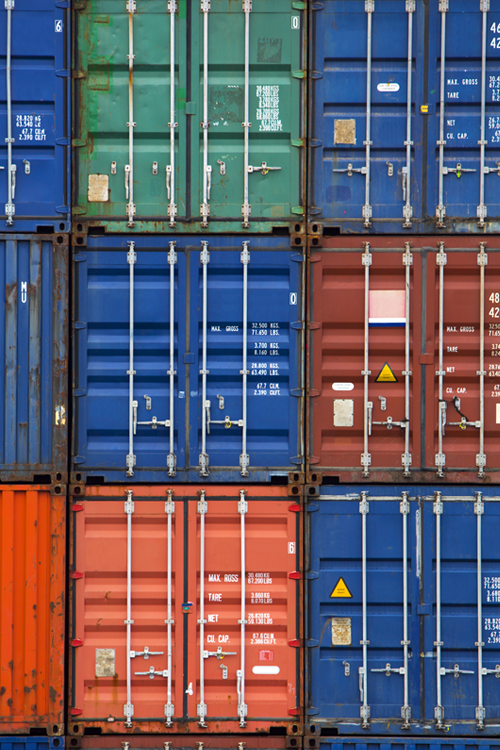The Rotterdam Rules, at 96 Articles, are much longer than either the Hague-Visby or Hamburg Rules, and address a wide variety of interests and objectives. In addition to increased limitation amounts and extended timelines, the following major changes should be noted:
o Carrier liability for delay;
o Application beyond sea component to provide for ‘door-to-door’ coverage;
o Application beyond Bills of Lading to electronic and other forms of contract;
o Extension of carrier liability to “Maritime Performing Parties”;
o Shipper liability for failure to give instructions; and
o Establishment of freedom of contract in volume contracts.
Longer timelines, Higher Limits
The Rotterdam Rules represent a further increase over the higher limitation amounts proposed under Hamburg. The weight limitation, presently 2 SDR/kg in Hague-Visby and 2.5 in Hamburg, will rise to 3SDR/kg under Rotterdam, a 50% increase over the Hague limits. The package limitation has increased more modestly, from 666.67 SDR under Hague to 835 SDR under Hamburg and now 875 SDR/package under Rotterdam; all of these amounts are greater than the USD$500/pkg applied under US COGSA. Of course, it should be noted that in all three Conventions it is the higher of the weight and package limitation that applies. These limitations apply unless damage can be proven to have been intentional or reckless, in which case liability is unlimited.
As under Hamburg, Rotterdam provides for carrier liability for delay, limited to 2.5x freight. The issue of delay is not addressed under the Hague-Visby regime, and the new provisions are the subject of some concern as will be detailed later.
Notice and time bars have also been extended in favour of cargo interests. The consignee should provide notice immediately, or within seven days if damage is not immediately apparent, and increase from the 72 hours provided by the Hague-Visby Rules. More importantly, the Article specifies that failure to provide prompt notice is not fatal to a subsequent claim. A separate timeline is provided for delay, for which the notice period is 21 days, but failure of notice is fatal to a subsequent claim. The burden of notice itself is also specified: notice served on any maritime performing party is considered to be notice to all.
Suits will be barred by the new Rules two years from the date on which they arise, an increase from the one year provided under Hague-Visby. The Rotterdam Rules preserve the extension provision from Art. 6bis of the Hague-Visby Rules, providing that even subsequent to the expiry of the time bar, a claim for indemnity in respect of a third party lawsuit may be brought within 90 days from the date on which that third-party claim is served.
Delay
The Rotterdam Rules provide for carrier liability for delay up to an amount equal to 2.5 x the freight in respect of the cargo. Article 21 provides that: “Delay in delivery occurs when the goods are not delivered at the place of destination provided for in the contract of carriage within the time agreed.”
That is the entirety of the provision for delay, and the interpretation may well present unexpected results. As most readers will be aware, for example, it is unusual for a bill of lading or similar transport document to provide for a date of delivery, although they commonly identify the ETA of the vessel at port. In the absence of an agreement, will the delay provision become unenforceable? Or, on the contrary, will Courts recognize liner schedules as being the ‘agreed’ date of delivery, with the result that those ETAs will become enforceable?
A further curious aspect of the new rule is a change of language from the delay provisions in the Hamburg Rules. Under Hamburg, the carrier “is liable for loss resulting from loss of or damage to the goods, as well as from delay in delivery…” if the loss occurred during the period of carrier responsibility. The provision on delay at Article 17 of the Rotterdam Rules removes the phrase “loss resulting from”, and accordingly implies that carriers are strictly responsible for delay in delivery in the amount of 2.5 x freight, without the need for cargo to prove that loss resulted from the delay, or at all. The Rotterdam provision also requires the cargo interest to prove that the loss or delay occurred during the period of carrier responsibility, while under Hamburg this onus was not placed on the cargo claimant.
As a practical matter, the figure of 2.5x freight will frequently represent a relatively minor liability: less than $10,000 on most FCL moves and of course much less on LCL movements. As the quantum available would likely be dwarfed by litigation cost, cargo interests may be incented to simply refuse freight rather than seek compensation; carriers (or, more likely, intermediaries) would then face a corresponding increase in collections litigation in respect of freight owing by consignees who assert a counterclaim in delay for 2.5x the principal amount.
Door-to-Door Coverage
A key purpose of the Rules was to bring the transport liability regime in line with the advent of containerization and the resulting dominance of multimodal transportation in the industry. Accordingly, at Article 12 the Rules provide that the responsibility of the carrier begins when the carrier (or a performing party) receives the goods until the time the goods are delivered. This is a substantial extension from the current period of liability, which runs from loading to discharge (or “rail-to-rail”). It should be noted that the Rules are still intended to cover carriage of goods wholly or partly by sea, and pursuant to Article 6 the rules only apply to a multimodal transport that includes at least one sea leg.
There is a significant exception to door-to-door coverage at Article 26. Where damage occurs exclusively prior to loading or solely after discharge, the Rotterdam Rules will not prevail over the provisions of another international convention of mandatory application. For example, the road or rail portions of transport within Europe are already subject to the mandatory application of the CMR or CIM, respectively, and the provisions of those conventions will prevail over the new Rules where damage occurs solely pre- or post-discharge.
Application extended beyond Bills of Lading
The Rotterdam Rules define a “Transport document’ as a document issued under a contract of carriage by the carrier that evidences receipt of goods (by the carrier or a performing party) and evidences the contract of carriage itself. Although the Rules do contain particular provisions for negotiable and non-negotiable documents, the extension of the regime to transport documents represents a significant expansion of coverage as compared to the Hague-Visby Rules, which applies only to Bills of Lading proper.
The Rotterdam Rules also contain extensive provisions in respect of electronic transport documents. An “Electronic Transport Record” is defined as information in one or more messages issued by electronic communication under a contract of carriage with a carrier that, like a transport document, evidences the contract itself as well as receipt by a performing party. The Rules also attempt to define the procedures for using electronic documents at Article 9, including that the contract of carriage must contain particulars with respect to the method of issuance and transfer, assurance with respect to the integrity of the electronic document, the manner in which the holder of the document may demonstrate that is a the holder, and a method for proving delivery (or otherwise providing for the invalidity of the document). Article 10 governs the replacing of a physical transport document with an electronic one.
Much more extensive provisions appear at Chapter 8 (Articles 35-42) which govern particulars in both electronic and physical transport documents. These provisions remain untested, and will be discussed in more detail in Part III.
Extension of carrier liability to “Performing Parties”
The Rules create two new classes of party who share in the responsibilities and liabilities of the carrier: “Performing Parties” and “Maritime Performing Parties”.
A “Performing Party” is a person (other than the carrier) who performs or undertakes to perform any of the carrier’s obligations from receipt to delivery at the carrier’s direct or indirect request, supervision, and control. However, no person retained directly or indirectly by the shipper, consignee, or controlling party is a Performing Party.
A “Maritime Performing Party” is a performing party to the extent the obligations are performed between the arrival of the goods at the port of loading and their departure from the port of discharge. An inland carrier is only a Maritime Performing Party if it performs services exclusively within a port area.
Pursuant to Article 18, the carrier is liable for the breach of its obligations caused by the acts or omissions of the carrier, any performing party, the master or crew, or the employees of the carrier or a performing party. Art. 19 provides that Maritime performing parties are subject to the obligations and benefit from the defences and limits under the Rules providing the party received, delivered, or performed its activities in a Contracting State and the loss occurred during its period of responsibility (or that of its subcontractors). The liability of the carrier and one or more maritime performing parties is “joint and several”, meaning each and all is liable for the entire loss, subject in aggregate to the limits set out in the convention.
Liability for failure to give instructions or take delivery
Chapter 7 (articles 27-32) contains obligations of the Shipper, some of which are novel. Shippers are responsible for delivering the goods and, if packed, to properly load and stow them for transport. Both carrier and shipper have an obligation imposed on them (Art. 28) to provide information and instructions required for the proper handling. The shipper only is subject to Art 29, which requires timely provision of information in respect of carriage, handling, and compliance with laws and regulations. Of course, the shipper remains responsible for dangerous goods (art 32).
Article 30 provides that the shipper is liable to the carrier for any loss or damage caused by a breach of the shipper’s obligations under the convention, and the carrier is relieved of its liability in the case of such breaches, unless the carrier or a performing party themselves also contributed to the loss. Importantly, as under the Hague-Visby Rules, the limitations of liability under the Rules apply only to the carrier. The shipper’s liability is theoretically unlimited.
Moreover, the shipper’s responsibilities are imposed on any documentary shipper, for example, on forwarders and NVOCCs who are not shippers but appear as shippers on transport documents issued by carriers. Art. 34 clearly extends this liability of the shipper to cover the acts and omissions of any of its agents and subcontractors (who are not, by definition, performing parties).
Perhaps even more importantly, Article 43 imposes an obligation on a consignee to take delivery of goods within the time and at the location specified in the contract of carriage or, if none is specified, at a time and location reasonable having regard to the terms of the contract and trade practice. If goods are undeliverable for any reason – even through regulatory action – the carrier is entitled to take action including sale or destruction of the goods in order to protect its interests. Art 49 preserves a carrier’s right of lien. The ‘person entitled to the goods’ remains responsible for all charges incurred in the case of non-delivery.
Establishment of freedom of contract in volume contracts
The “freedom of contract” provisions, adopted at the insistence of the United States, are almost certainly the most significant and most controversial portion of the new Rules.
A Volume Contract is a contract that provides for the carriage of a specified quantity (or range) of goods in a series of shipments during an agreed period of time. This broad language means that, for example, an agreement to ship two containers of goods over the course of two years would qualify as a ‘volume contract’.
Chapter 16, Article 80, permits a carrier to derogate from its responsibilities under the Convention where:
-the derogation is stated prominently;
-the derogation is individually negotiated;
-the shipper has the opportunity to contract on normal Convention liabilities; and
-the derogation is no incorporated by reference.
Even under volume contracts, the carrier may not derogate from its responsibilities to make and keep the ship seaworthy or to properly crew and equip the ship, nor may it limit its liability for losses caused recklessly or with intent. In spite of these exceptions, however, it is clear that the provisions relating to volume contracts will enable carriers to opt-out of virtually all of their responsibilities in the vast majority of shipping arrangements. If ‘volume contracts’ become the norm, we may see a two-tier international framework in which the preponderance of shipments will not be subject to the Convention in any meaningful way.
This and other concerns with the new regime will be the subject of Part III.
[Ed. Note: This is part 2 in a 3 part series, excerpted from a larger paper by the author and which formed the basis of remarks given at the Annual General Meeting of the Canadian International Freight Forwarders’ Association at Montreal on 13 May 2009.]




